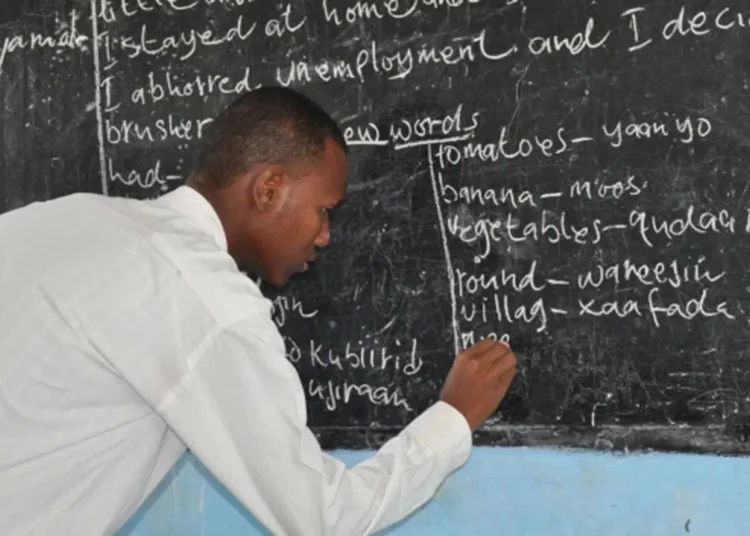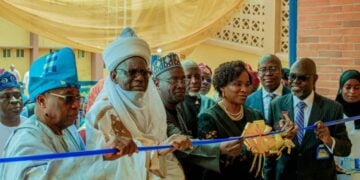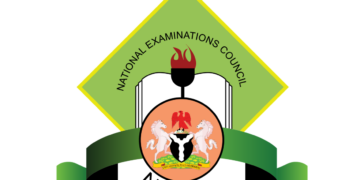Every October 5, the world pauses to celebrate Teachers’ Day, a moment dedicated to honouring the indispensable role of educators in shaping societies accross the world.
In Nigeria, as preparations are underway to celebrate teachers at the Eagle Square on Sunday, the occasion comes with a bittersweet taste from the teachers’ experience.
Behind the tributes and promises of reform lies the stark reality of a profession weighed down by poor funding, insecurity and dwindling morale where many graduates are not willing to go into the profession.
For many teachers, World Teachers’ Day is less a celebration and more a reminder of what still needs to be fixed.
Since its establishment in 1994 to commemorate the adoption of the 1966 ILO/UNESCO Recommendation concerning the Status of Teachers, World Teachers’ Day has been more than a ceremonial event.
It has served as a benchmark for global standards on teachers’ rights, responsibilities and conditions of service. This year’s theme, “Recasting Teaching as a Collaborative Profession,” resonates globally, but in Nigeria it raises difficult questions.
Collaboration, peer support and professional networks remain elusive for most teachers who often work in isolation, burdened by circumstances beyond their control.
“Teachers remain the backbone of Nigeria’s education system,” as the Minister of Education, Dr Tunji Alausa stated, yet their daily struggles tell a story of hardship.
Across states, teachers lamented facing poor remuneration, unpaid salaries, infrastructural decay, insecurity and little access to professional development.
The Nigerian Union of Teachers (NUT) has consistently lamented that many state governments owe salaries running into months, while pension arrears and gratuities remain unsettled for retirees. This neglect discourages younger graduates from seeing teaching as a viable career path.
Although, the 1966 ILO/UNESCO benchmarks called for fair wages, job security and professional autonomy, nearly six decades later, these remain aspirations in Nigeria rather than reality.
While teachers in federal schools may fare slightly better, those in rural communities are left to teach in dilapidated classrooms with no teaching aids and overcrowded classes of more than 100 pupils.
Collaboration, the very focus of this year’s theme, is another missing link. Teachers in Nigeria rarely enjoy the benefit of peer learning or structured mentoring systems. Many are confined to their classrooms, bearing the responsibility of teaching alone.
A UNESCO report recently pointed out that the lack of collaborative structures in Sub-Saharan Africa contributes to teacher attrition.
In Nigeria, attrition is evident as teachers abandon classrooms for jobs in banking, business, or migration abroad.
Beyond welfare and collaboration, insecurity continues to stalk the profession. In northern states, the wave of banditry and abductions has forced hundreds of schools to close, leaving children without access to education and driving teachers away from rural postings.
The statistics are grim. Nigeria currently faces a deficit of nearly 195,000 teachers in public primary schools, with an average pupil–teacher ratio of 49:1, according to a recent Universal Basic Education Commission (UBEC) statistics.
At the same time, UBEC reports that Nigeria needs at least 1.1 million additional classrooms at the basic education level.
Speaking ahead of the event, the Minister of Education, Tunde Alausa, acknowledged the difficulties facing teachers while assuring them of government’s commitment to change.
“Teachers are the backbone of society,” he said. “We know your welfare is not what it should be, but I assure you that light is at the end of the tunnel. We are working to design better packages for you, because without teachers there is no doctor, no engineer, no professor.”
He stressed that the era of isolation must give way to collaboration. “For too long, teaching has been practiced in isolation, with each teacher confined to their classroom. But the challenges of technology, pedagogy and equity cannot be solved alone. Collaboration transforms teaching into a dynamic community of practice.”
The Minister pledged to establish structures for peer learning, expand digital platforms that connect teachers across regions, and ensure evaluations reward collaboration, not just individual effort.
“When teachers collaborate, students are the ultimate beneficiaries. They receive richer, more engaging instruction, and they witness firsthand the power of teamwork. Education is the bedrock of society, and teachers are its architects. Your products engineers, doctors, lawyers are excelling globally. We cannot pay you enough, but we must give you recognition, support and dignity.”
However, teachers lamented that they have heard similar promises in the past, yet they continue to wait for change.
For them, the true measure of celebration is not in speeches or flowers, but in concrete actions that reflect the value of their work, timely salaries, safe classrooms, professional respect and the dignity they deserve.
Some Abuja based teachers who spoke to LEADERSHIP urged the current administration to revisit promises made during the tenure of late President Muhammadu Buhari which were aimed at transforming the welfare and status of Nigerian teachers.
One of the teachers, Mr Collins Aondo, recalled that on World Teachers’ Day in 2020, Buhari announced far-reaching reforms, including the introduction of a special salary scale for teachers, a special pension scheme, rural posting and science teachers’ allowances, and improved welfare packages while promising to extend teachers’ retirement age from 60 to 65 years and their years of service from 35 to 40.
He said: “In addition, Buhari pledged automatic employment for education graduates, stipends for education students during training, free tuition for teachers’ biological children in their schools, low-cost housing in rural areas, and at least one refresher training per year.
“These commitments, coupled with teacher conversion programmes, ICT training, and prompt promotion policies, were presented as a comprehensive strategy to raise the profession’s appeal and reward its practitioners.
“I would like this government to revisit those unfulfilled promises as they were good enough address some of the challenges facing the teaching profession.
“Celebrating teachers is not about words, it is about making sure our classrooms, our salaries and our dignity reflect the value of our work we do. Government must rise from mere political statement and implement policies that address the plight of teachers in the country,” he said.





